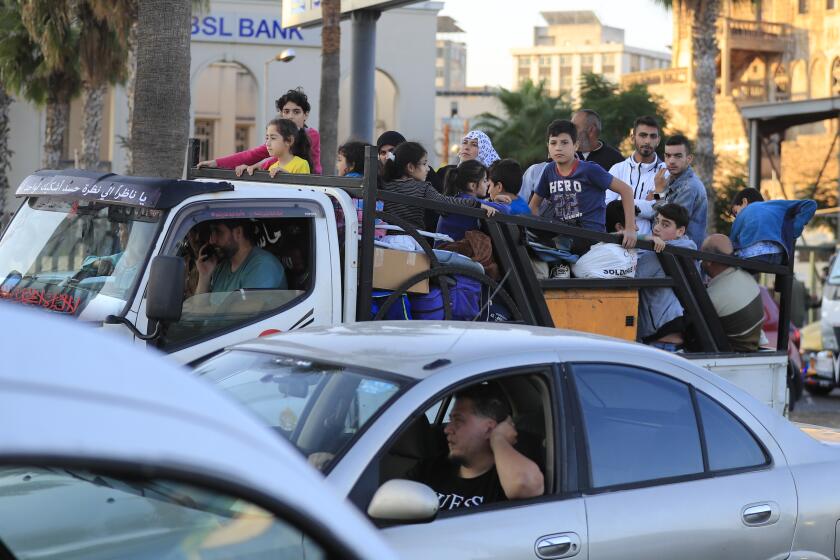U.N. Approves Resolution to Curb Spread of Illicit Arms
UNITED NATIONS — The Security Council unanimously adopted a resolution Wednesday requiring all nations to pass laws to help prevent the spread of weapons of mass destruction to terrorist groups.
President Bush called on the United Nations in September to patch the holes in international treaties that don’t cover black marketeers and rogue groups dealing in parts and technology for nuclear, chemical and biological weapons.
Calling the underground proliferation of banned weapons “a clear and present threat to global peace and security,” U.S. Deputy Ambassador James B. Cunningham echoed Bush’s statement last year that terrorists would use any channel open to them, so the world must cooperate to cut them off.
“No one nation can meet this challenge alone,” he told the council.
The resolution compels all countries to adopt laws to criminalize the spread of weapons of mass destruction, to ensure that they have strong export controls and to secure sensitive materials within each country’s borders.
It was adopted under Chapter VII of the U.N. Charter, which legally obliges all countries to comply, and paves the way for the use of force or sanctions. U.N. members must report on their compliance within six months, and the resolution provides for a Security Council committee to monitor compliance for at least two years.
But the resolution contains no sanctions or enforcement measures to punish those who skirt it.
After seven months of negotiation and three formal revisions, all 15 council members -- even Pakistan, which held out until the last moment -- voted in favor of the measure.
“This is among the most important acts the Security Council will take this year,” said Mihnea Motoc, Romania’s ambas- sador to the U.N.
Recent revelations that Pakistani scientist Abdul Qadeer Khan had helped spread nuclear know-how to North Korea, Iran, Libya and perhaps others added urgency to the resolution. But countries such as Pakistan also feared that such a measure could make them vulnerable to U.N.-sanctioned armed intervention.
The drawn-out negotiations gradually overcame a veto threat by China and opposition to parts of the draft resolution by Pakistan, Germany, Brazil and Algeria. The U.S. won China’s support by dropping a call to stop ships at sea suspected of carrying banned weapons. Chinese Ambassador Wang Guangya had said such interdiction violated international laws.
Other countries were concerned that the Security Council was trying to legislate for the world by requiring nations to pass laws.
Pakistan was particularly concerned that the resolution would allow intrusive inspections of its nuclear facilities, a provision that was dropped during talks. After reassurances that the resolution was designed to close the gate to future Khans, Pakistan backed the resolution at the last minute, making the vote unanimous.
Pakistani Ambassador Munir Akram’s explanation of his vote, directed largely to his home audience, was longer than the resolution. Akram promised to support the measure but said that Pakistan would not allow international inspections of its nuclear and strategic facilities, and would continue to develop its nuclear capability as a deterrent to its nuclear neighbor, India.
German Ambassador Gunter Pleuger said he had reservations about parts of the resolution, but the urgency of the growing threat overwhelmed minor disputes. “We are dealing with a very real and imminent threat,” he said. “We sent the strongest possible political signal from the council, and that is unanimity.”
More to Read
Sign up for Essential California
The most important California stories and recommendations in your inbox every morning.
You may occasionally receive promotional content from the Los Angeles Times.










